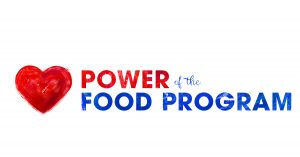Specialty 7
Good News! The Importance of Sharing Your CACFP Story
Together we can raise awareness of the CACFP works to combat hunger. Hear stories about what the CACFP community is doing to share its message and learn how to use social media strategies, local and state proclamations, local news stories and more to help raise awareness about the CACFP.
Read MoreTake Action: The Importance of Advocacy in the CACFP ($)
The CACFP plays a critical role in promoting nutrition security, yet many do not know about the food program and all the great work being done by program operators and providers nationwide. Join us to learn how to advocate for the CACFP and explore tools and resources to effectively communicate the importance of your work. Gain insights on raising awareness and highlighting the invaluable role of the CACFP within communities.
Read MorePolicy Basics: Understanding Laws, Regulations and Rulemaking ($)
Understanding the complexities of policy can be difficult, but it’s important to know the different mechanisms that create and affect the CACFP. In this interactive policy crash course, we will answer questions like: What is determined by Congress and what is determined by USDA? What is the difference between a law and a regulation? What’s the process for creating a new rule for CACFP? Equip yourself with essential knowledge for better understanding and navigation of policy that shapes the CACFP.
Read MoreCivil Rights Complaint Procedures ($)
It’s a requirement for operators of CACFP to ensure non-discrimination in the administration of the program and knowing how to establish a written procedure for handling civil rights complaints related to discrimination is important. Gain a comprehensive understanding of the Civil Rights Complaint Procedures and learn how to develop a Self-Assessment Checklist, essential components for compliance. Enhance your knowledge, strengthen your agency’s commitment to civil rights in the CACFP, and be inspired by a real-life example showcasing the successful execution of these procedures.
Read MoreAdvancing Indigenous Health Equity and Food Security
Policy is a major determinant of health among American Indians and Alaska Natives. Explore the complex factors that have contributed to high rates of obesity and diabetes among Indigenous Peoples in the United States, including, but not limited to, the disruption of Indigenous knowledge systems, commodity food offerings, displacement, and federal funding shortfalls. Identify best practices for engaging with American Indian and Alaska Native Tribes and Villages and learn how state and federal food commodity programs can advance food sovereignty efforts.
Read MoreAdvocating for the CACFP: How to Host Elected Officials
Showcasing your program is one of the most impactful ways to advocate for the CACFP. Invite your elected official to join you at your site to interact with and serve meals/snacks to the children or adults in your care. Learn how to host your elected official at your site, from the initial invite to the follow up after a successful site visit.
Read MoreAdvocating for a Third Meal ($)
Ready to advocate for a reimbursement of a third meal but unsure of where to start? Explore the importance of advocating at the state and local levels in early childhood nutrition and how to secure legislation and funding.
Read MoreGood News! Sharing Your CACFP Story ($)
Together we can raise awareness of how the CACFP works to combat hunger. Hear stories about what the CACFP community is doing to share its message and learn how to use social media strategies, local and state proclamations, local news stories and more to help raise awareness about the CACFP.
Read MorePower of the Food Program with CACFP
You agree to serve healthy meals and snacks. The USDA CACFP offers you financial reimbursement. Learn about the history of the food program and how to get the most from your day of exciting training with us. We’re defining the CACFP and celebrating you!
Read MoreCivil Rights 101: Compliance with Civil Rights Requirements
Civil Rights training is an annual requirement for state agency staff who interact with program applicants, sponsors, program participants, potentially eligible individuals and those persons who supervise front line staff. This session will fulfill that requirement while addressing the Civil Rights training requirements as outlined in FNS Instruction 113-1, Civil Rights Compliance and Enforcement – Nutrition Programs and Activities.
Read More





